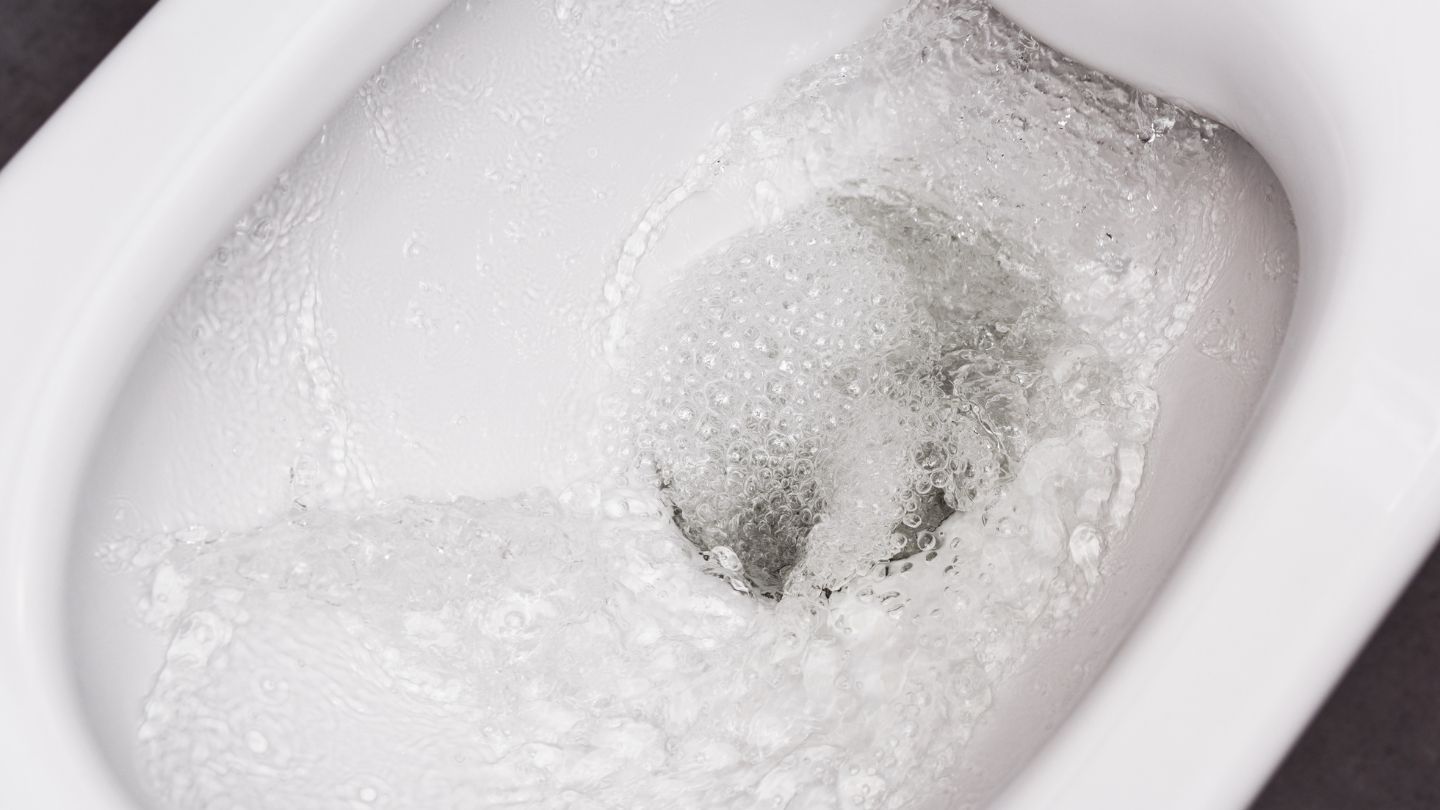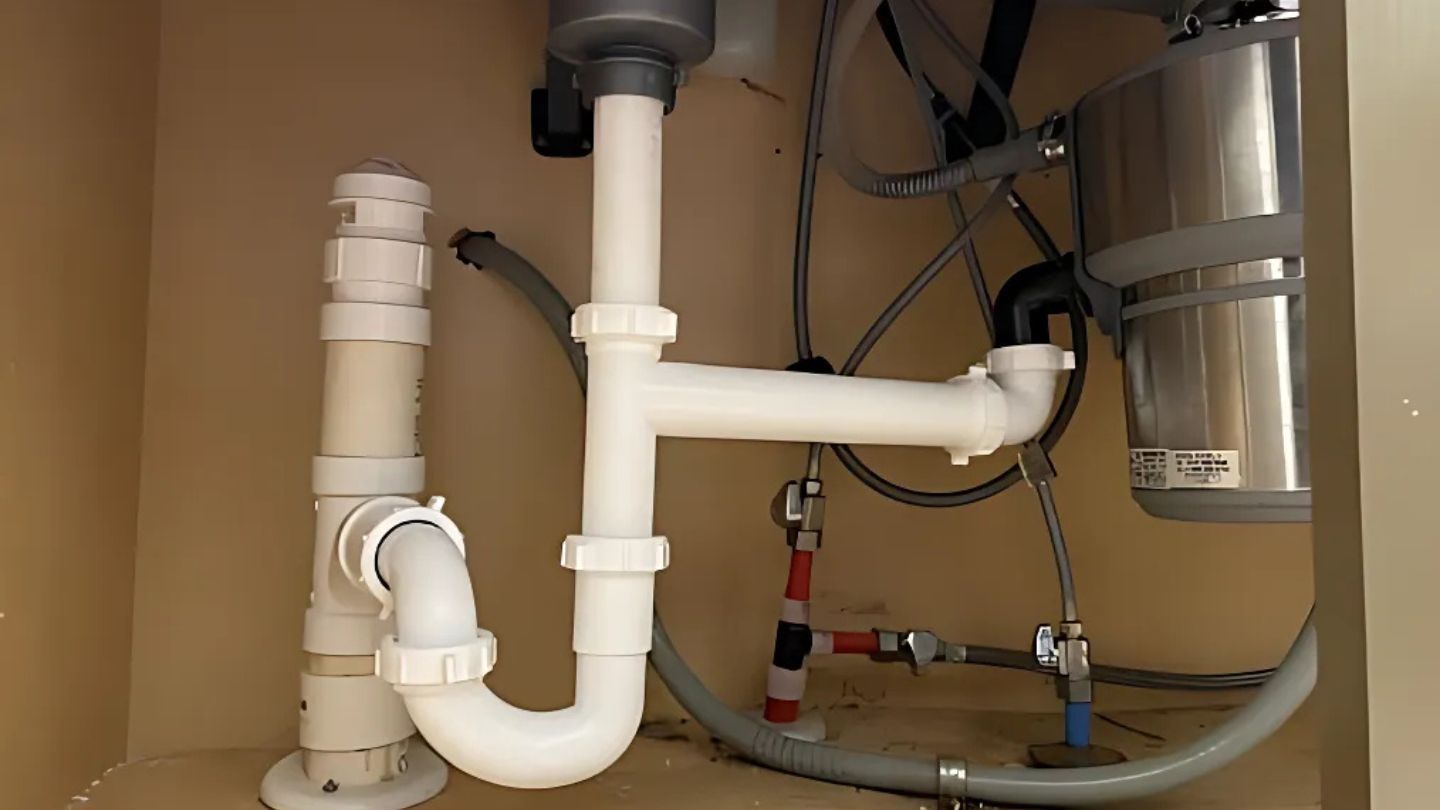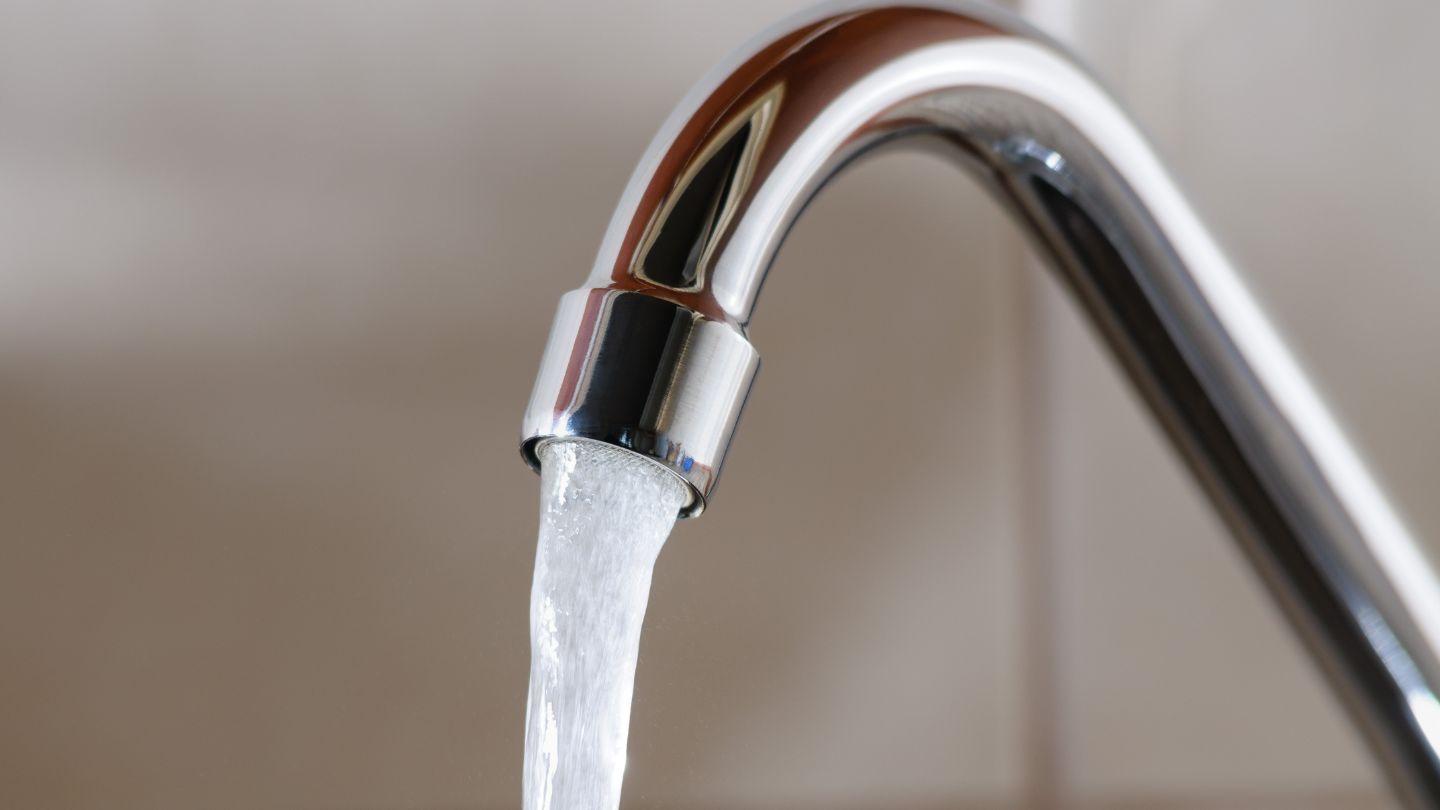When you flush most toilets,
hearing noises from the pipes can be unsettling. Understanding what causes
noise from pipes when a toilet flushes can help you identify the problem and
find a solution. Common issues include water hammer, loose pipes, and high
water pressure. This blog will guide you through diagnosing and fixing these
problems to keep your plumbing quiet and efficient.
Key Takeaways
- Common causes of noisy pipes during toilet flushing include water hammer, loose pipes, and high water pressure, each requiring specific solutions.
- Diagnosing toilet noises, such as hissing, groaning, and gurgling toilets, is essential for effective plumbing maintenance and indicates distinct underlying issues.
- Addressing
persistent noises and severe plumbing problems should involve professional
intervention to prevent further damage and ensure a properly functioning
plumbing system.
Common Causes of Noisy Pipes When Flushing
Noisy pipes during toilet
flushing often indicate underlying issues in the plumbing system that require
immediate attention. Common causes include water hammer, unsecured pipes, and
high water pressure. Identifying these issues is the first step toward restoring
quiet and efficient plumbing in your home.
Water Hammer
Water hammer is a prevalent
issue in plumbing systems, occurring when a valve shuts abruptly, causing a
shock wave through the pipes. This is how water hammer occurs, resulting in
loud clanging noises that can damage pipes over time.
A licensed plumber can assess
your system and install devices such as water hammer arrestors or
pressure-reducing valves. These tools effectively absorb shock waves and
protect the structural integrity of your plumbing, preventing further noise and
potential damage.
Loose Pipes
Unsecured pipes often rattle or
bang as water flows through them, especially during processes like flushing the
toilet. These sounds are amplified if the pipes are located inside walls or
under floors.
Plumbers can locate and
stabilize loose pipes using specialized pipe straps and brackets. They may also
add insulation to minimize vibrations. This professional approach ensures that
your pipes remain secure and operate quietly.
High Water Pressure
Excessive water pressure is a
common yet often overlooked cause of noisy pipes. It not only creates
disruptive vibrations but can also lead to leaks and long-term damage to your
plumbing system.
Plumbers use precise tools to
measure and adjust water pressure to safe levels. They can install pressure
regulators to maintain consistent and optimal pressure throughout your system,
preventing noise and extending the lifespan of your plumbing infrastructure.
Addressing these issues with
professional expertise ensures the proper functioning and longevity of your
home's plumbing system. By resolving disturbances such as water hammer, loose
pipes, and high water pressure, you can maintain a quiet, efficient, and
durable plumbing setup.
Diagnosing Specific Toilet Noises

Identifying specific toilet
noises is an essential step in diagnosing and resolving plumbing issues.
Different sounds indicate distinct problems that require targeted solutions,
such as issues with the toilet's fill valve. Whether it's hissing, groaning, or
gurgling, understanding what each noise signifies helps ensure effective repair
and maintenance. Addressing these noises promptly with professional expertise
prevents further damage to your plumbing system.
Hissing Sounds
A persistent hissing noise
typically indicates a problem with the toilet's fill valve or flapper. This
occurs when water escapes through deteriorated components, leading to
unnecessary water waste and higher utility bills.
Licensed plumbers can inspect
the fill valve and flapper for signs of wear or damage. They replace any faulty
parts with high-quality components, ensuring your toilet operates efficiently
and quietly. Additionally, they verify that water flow and pressure are
properly regulated to prevent future issues.
Groaning or Vibrating Noise
Groaning or vibrating sounds
during or after flushing often stem from fluctuations in water pressure or
loose components in the fill valve. These noises may persist for several
seconds or longer, indicating a deeper issue within the system.
Expert plumbers can thoroughly
examine your fill valve and its connections, diagnosing the root cause of the
noise. They perform adjustments or replace malfunctioning parts as needed,
restoring smooth and quiet operation to your plumbing. Their precise work
ensures long-term reliability.
Gurgling Sound
A gurgling toilet typically
signals a blockage in the drain line or vent stack. This can lead to slow
draining, bubbling in other fixtures, and potential system-wide drainage
complications if not addressed promptly.
Plumbers use advanced diagnostic tools, such as drain cameras, to locate and identify the blockage. They then deploy specialized equipment, such as augers or hydro-jetting systems, to clear obstructions safely and efficiently. Beyond resolving the immediate issue, they assess your plumbing system to prevent future blockages, ensuring smooth operation throughout your home.
If you hear a gurgling sound
emanating from your toilet, it could signal an underlying issue with the
plumbing system. The noise is typically symptomatic of an obstruction in the
drain line, vent stack, or even disturbances in the supply line and can escalate
into significant drainage complications if not dealt with swiftly. Other
fixtures may experience slow draining or exhibit bubbling, which suggests that
this problem might be affecting multiple areas within your plumbing network.
If DIY approaches prove
ineffective at eliminating the gurgling noise, it's imperative to consult a
professional plumber. They have the expertise to pinpoint and remove any
blockages accurately, safeguarding your plumbing system against potential harm.
Addressing Water Hammer Issues
Water hammer is a disruptive
issue that can damage your plumbing system if not addressed promptly. It occurs
when abrupt changes in water pressure create shock waves in the pipes, leading
to loud banging noises and potential structural damage. To safeguard your
plumbing system, it's crucial to implement professional solutions that
effectively manage this issue.
Two effective methods for
combating water hammer include installing a water hammer arrestor and a
pressure-reducing valve. Both solutions mitigate the effects of shock waves,
reduce noise, and enhance the overall functionality of your plumbing system.
Installing a Water Hammer Arrestor
A water hammer arrestor is a
specialized device designed to absorb shock waves and minimize rattling noises
in plumbing systems. It features a piston or diaphragm that separates air from
the water flow, creating an air cushion to absorb the impact of sudden water
movement. This significantly reduces noise and protects your pipes from damage.
Installing a water hammer
arrestor requires expert assessment to determine the optimal placement within
your plumbing system. Professional plumbers use precision tools and techniques
to integrate the device seamlessly, ensuring its effectiveness. By relying on
professional installation, you enhance the longevity and performance of your
plumbing system, maintaining quiet and efficient operation.
Pressure Reducing Valve
Excessive water pressure is a
common cause of water hammer. A pressure-reducing valve is designed to manage
and regulate water pressure throughout your plumbing system, preventing the
abrupt surges that lead to a water hammer.
Licensed plumbers carefully
measure your home's water pressure and install the pressure-reducing valve to
ensure consistent and safe levels. They calibrate the valve to balance
performance and efficiency, preventing noise and minimizing stress on your pipes
and fixtures. This professional approach ensures long-term protection and
functionality for your plumbing system.
Fixing Loose Pipes

Securing loose pipes is
essential for maintaining a quiet and efficient plumbing system. Unfastened
pipes can rattle or bang as water flows through them, creating disruptive
noises and potentially leading to structural damage. Addressing this issue with
professional solutions ensures the longevity and reliability of your plumbing
system.
Pipe Straps and Brackets
Pipe straps and brackets are
critical tools for stabilizing loose pipes. By firmly securing pipes to
structural elements, these devices prevent movement and significantly reduce
noise caused by vibrations. Adding rubber buffers between the pipes and supports
further minimizes sound by absorbing vibrations.
Plumbers evaluate the layout of
your plumbing system to identify areas where pipes are unsecured. They
carefully install pipe straps and brackets, ensuring precise placement for
maximum stability. Professionals also inspect the system for any existing damage
caused by loose pipes and repair it as needed, guaranteeing a more durable and
silent plumbing network.
Professional Inspection
While some loose pipes are
visible and accessible, others may be hidden behind walls or beneath floors,
making professional intervention necessary. Identifying and stabilizing these
pipes requires specialized skills and tools.
A licensed plumber conducts a
thorough inspection of your plumbing system to locate and address loose pipes
in hard-to-reach areas. Using advanced diagnostic tools, they ensure every pipe
is securely anchored, preventing future movement and noise. This comprehensive
approach safeguards your system from potential damage caused by prolonged instability.
Resolving High Water Pressure

Maintaining water pressure
within the recommended range is crucial for a quiet, efficient, and
long-lasting plumbing system. Excessive water pressure can lead to noise,
leaks, and pipe damage. Addressing high water pressure with professional
solutions not only protects your plumbing but also ensures optimal performance.
Managing the Main Water Supply
Adjusting the main water supply
valve is a common method for managing water pressure. Proper adjustment reduces
noise from pipes and prevents potential damage caused by excessive pressure.
However, incorrect adjustments can lead to further issues, such as insufficient
water flow or system strain.
Licensed plumbers use
specialized tools to accurately measure and adjust the main water supply valve.
Their expertise ensures that the pressure remains within safe limits,
preventing disruptions and protecting your plumbing infrastructure. They also
inspect the system for signs of damage caused by prolonged high pressure and
address any issues to restore system integrity.
Installing a Pressure Regulator
A pressure regulator is a
highly effective device for controlling high water pressure. It maintains
consistent pressure throughout the plumbing system, preventing stress on pipes
and fixtures while minimizing noise. Regular monitoring of pressure levels with
a gauge ensures continued efficiency.
Plumbers select and install
pressure regulators tailored to your plumbing system's requirements. They
calibrate the regulator to ensure ideal pressure levels, balancing system
performance and efficiency. In addition to installation, plumbers can perform regular
maintenance to ensure the device remains in optimal condition, extending the
life of your plumbing system.
When to Call a Professional Plumber
Recognizing when to enlist the
expertise of a professional plumber is crucial for resolving persistent noise
disturbances and preventing further damage to your plumbing system.
Professionals have the skills and tools needed to diagnose and address intricate
plumbing issues, ensuring your system functions efficiently and quietly. Key
indicators for seeking professional help include unrelenting noises and signs
of significant plumbing problems.
Scheduling routine inspections
by a licensed plumber can prevent minor issues from escalating into costly
repairs, providing you with long-lasting peace of mind.
Read more: The Most Common Plumbing Issues and How to Fix Them
Persistent Noises
Consistent noises such as
gurgling, hammering, or groaning often indicate deeper issues within the
plumbing system. These sounds may stem from blockages, high water pressure, or
faulty components, which can worsen over time if left unaddressed.
When basic troubleshooting
fails to resolve these disturbances, contacting a plumber for a comprehensive
evaluation is essential. Experts use advanced diagnostic tools to pinpoint the
root cause of the noise. They then implement precise solutions, such as
clearing blockages, adjusting pressure levels, or replacing faulty parts to
restore smooth and quiet operation.
For example, persistent
gurgling often signifies a blocked vent or drain line. Turning off the water
supply and calling a professional plumber ensures that the obstruction is
safely removed and your plumbing system is restored to optimal functionality.
Signs of Severe Issues
Certain noises, such as
continuous gurgling or bubbling, may signal severe plumbing issues that demand
immediate attention. These sounds are often indicative of vent blockages, drain
line clogs, or other critical problems that can lead to extensive damage if
ignored.
A seasoned plumber conducts a
thorough inspection to identify the underlying cause of the issue. Using
specialized tools like cameras and augers, they address problems such as clogs
or damaged vents with precision. Timely intervention prevents further complications
and preserves the long-term functionality of your plumbing system.
Read more: Why Go for Professional Water Heater Repair
Summary
Noisy pipes can stem from
various issues such as water hammer, unsecured pipes, or elevated water
pressure. Addressing these problems with professional solutions—like installing
water hammer arrestors, stabilizing loose pipes, and regulating water pressure—is
essential to ensure a quiet, efficient, and durable plumbing system.
At A-Total Plumbing - An Ace
Home Services Company, we offer reliable and expert solutions for all your
plumbing needs, including plumbing near Smyrna. Our skilled team offers comprehensive plumbing services, including in-depth inspections and precise installations, ensuring your home's plumbing functions smoothly and silently. We proudly serve homeowners in Acworth, Marietta, Bartow County, Cobb County, Roswell, and Alpharetta, ensuring reliable and efficient water heating solutions across the region. Let us
restore tranquility to your home—contact us today!
Frequently Asked Questions
Why do my pipes make a banging noise after flushing the
toilet?
This is often caused by a water
hammer, which occurs when water flow stops abruptly, creating shock waves in
the pipes. Installing a water hammer arrestor can resolve this issue.
What should I do if my toilet makes a gurgling noise?
Gurgling sounds usually
indicate a blockage in the drain or vent system. A professional plumber can
locate and clear the obstruction to restore proper drainage.
Can high water pressure damage my plumbing system?
Yes, excessive water pressure
can lead to leaks, noisy pipes, and premature wear on fixtures. A pressure
regulator can help maintain safe and consistent pressure levels.

